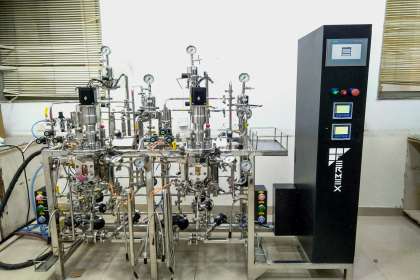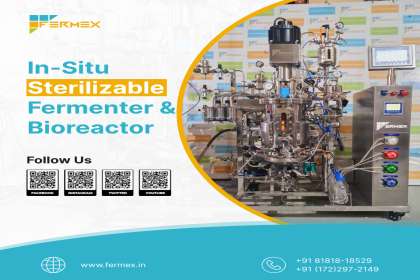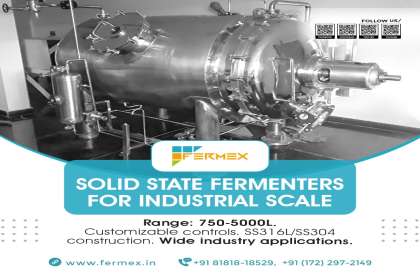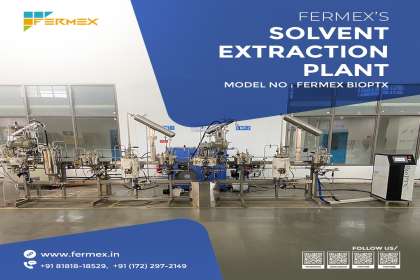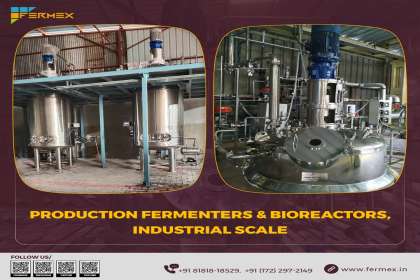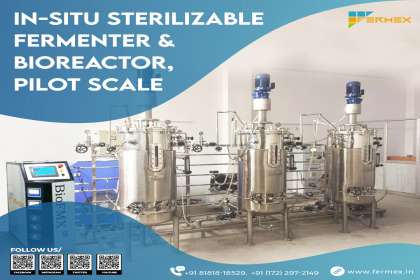
Introduction:
Stainless steel fermenters may appear as simple vessels used in various industries, but their significance and complexity go far beyond their appearances. The choice of stainless steel for fermenter construction is deeply rooted in the scientific and engineering principles that make it the gold standard for fermentation processes. In this comprehensive blog, we’ll explore the intricate science behind stainless steel fermenters, shedding light on why they are the preferred choice for a wide range of applications, from brewing beer to producing pharmaceuticals.
Corrosion Resistance: The Chromium Shield
The exceptional corrosion resistance of stainless steel fermenters is a product of the alloy’s unique composition. Stainless steel is primarily composed of iron, chromium, nickel, and other elements, but the real star here is chromium. When exposed to oxygen, chromium forms a thin, self-repairing passive oxide layer known as chromium oxide. This layer acts as a protective shield, preventing further oxidation of the underlying metal. As a result, stainless steel remains resistant to corrosion, even when subjected to the aggressive substances produced during fermentation, such as acids and alcohols.
Hygiene and Cleanability
Another vital characteristic of stainless steel is its smooth and non-porous surface. Unlike materials with microcracks and irregularities, stainless steel boasts a surface that is easy to clean and sanitize. In fermentation processes, maintaining a sterile environment is paramount to prevent contamination and ensure product quality and safety. Stainless steel’s smooth surface allows for thorough cleaning and sanitization, making it a top choice for industries with stringent hygiene standards like pharmaceuticals and biotechnology.
Strength and Durability
Stainless steel is renowned for its strength and durability. It possesses a high tensile strength and can withstand the mechanical stresses and internal pressures that occur during fermentation processes. This robustness is especially crucial in large-scale industrial fermentations where the fermenter must endure high pressures. Furthermore, stainless steel fermenters are less prone to wear and tear, resulting in an extended service life compared to alternatives. This not only translates to cost savings but also minimizes downtime for maintenance and replacements.
Thermal Properties: Mastering Temperature Control
Stainless steel boasts excellent thermal properties. It has a high thermal conductivity, which facilitates efficient temperature control during fermentation. Precise temperature control is vital for maintaining optimal conditions for the microorganisms or enzymes involved in the fermentation process. Additionally, stainless steel’s resistance to extreme temperatures makes it suitable for both hot and cold fermentation processes. This versatility is indispensable in industries where different temperature ranges are necessary for different products.
Non-reactive Nature: Safeguarding Product Integrity
The non-reactive nature of stainless steel is a significant advantage in fermentation processes. It does not react with most chemicals, ensuring the purity and integrity of the final product. This quality is particularly vital in pharmaceutical and biotechnology industries where any chemical reactions between the fermenter material and the product can lead to undesirable consequences.
Aesthetic and Surface Finish
While aesthetics may not be the primary concern in industrial settings, stainless steel fermenters often feature a polished and visually appealing surface finish. This not only contributes to overall cleanliness and hygiene but also reflects a commitment to quality in the manufacturing process. A well-maintained surface finish can also enhance the longevity of the fermenter by reducing the risk of corrosion.
Recyclability
Stainless steel is an environmentally friendly choice due to its recyclability. It can be recycled repeatedly without losing its properties, reducing the environmental impact of its production and disposal. This aligns with the growing emphasis on sustainability and environmentally responsible manufacturing practices.
Flexibility in Design: Tailoring for Specific Needs
Stainless steel’s malleability and weldability provide flexibility in the design of fermenters. Manufacturers can customize fermenter shapes and sizes to meet specific requirements. This adaptability ensures that stainless steel fermenters can be tailored to suit the unique needs of various industries and fermentation processes.
Conclusion:
In conclusion, stainless steel fermenters are the unsung heroes of the fermentation world, blending science and engineering seamlessly. Their corrosion resistance, hygienic qualities, strength, durability, thermal properties, non-reactive nature, aesthetics, recyclability, and design flexibility make them an ideal choice for a diverse range of fermentation processes. As technology continues to advance, stainless steel fermenters are poised to remain at the forefront of fermentation-based production processes, ensuring the consistency, purity, and safety of the final products. Whether you’re brewing the finest beer or developing ground breaking pharmaceuticals, stainless steel fermenters stand as a testament to the ingenious marriage of science and industry.








